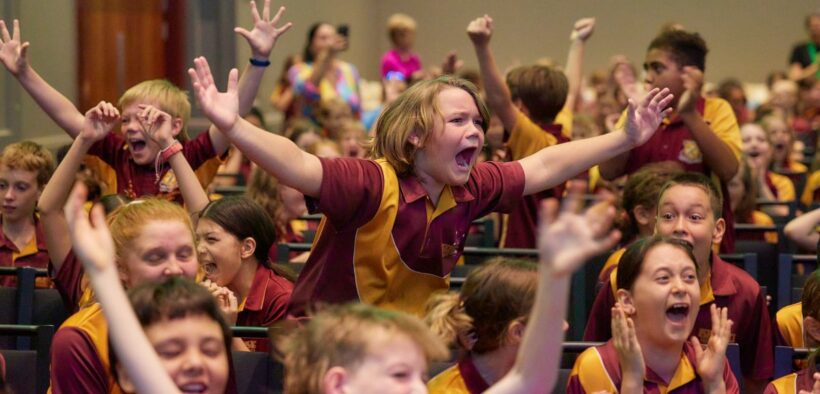Opinion: Storytelling lies at the heart of better childhood literacy
Share

There’s a media cycle around education that runs like clockwork. NAPLAN and PISA test results have triggered another round of debate over falling literacy standards and big questions over how we solve the ‘crisis’. While we hesitate to suggest there is a fresh crisis in need of action, it is true that literacy is crucial to success in education, and there is a lot we can do to ensure children build confidence in key literacy skills.
Why are some countries doing better than others when we compare literacy results? Places like Finland, for example, show an investment in early literacy and play-based learning that fosters oral language, growing phonemic awareness and curiosity around sounds and words.
The connection between children’s literacy and their development of oral language can often be underestimated. If you cast your mind back ahead of the printed word, we are reminded that giving children the space to explore words – their meanings and musicality – and to hear and tell stories builds a greater understanding of the underpinnings of the alphabetic principles – oral language and phonemic awareness.
In the early years of education, we want to make sure children have a really good understanding of these fundamentals and have the opportunity to engage in deep listening as an onramp to deep reading.
Technology holds both pitfalls and potential for young learners. There is research that supports the idea that devices have improved our capacity to process and synthesise disparate pieces of information better than in the past. But at the same time, flicking quickly between screens may also reduce the prevalence of deep reading, particularly in younger users.
With all this in mind, The Australian Literacy & Numeracy Foundation partnered with Amazon to create Story Sauce on Alexa, an independent learning skill available on Amazon devices designed to gain the benefits of self-directed digital learning but through an oral context. We wanted to create a light touchy way for children to listen to stories and then provide a check-in on how well they understood what they listened to.
By adding the interactive component, we focus their attention on the story and encourage deep listening, asking them to recall what they heard and develop opinions. Ideally, it also captures their curiosity and makes them want to listen to another story – or write their own.
This back-and-forth practice is an important part of literacy development. We talk about the ‘dosage’ of learning opportunities for this back and forth. Nothing beats practice. Time with parents and caregivers is vital, but having additional avenues for practice can be a great addition to give more chances for engagement beyond the school gates.
We’re thankful that Amazon was a collaborator, not just a corporate partner. They value the work and the research that shows what children need. The new learning experience features stories that really draw the listener in, with narrators modelling solid fluency and expression for the listener – important skills in mastering literacy. As anyone who has listened to a great audiobook knows, the way a story is told often enhances the connection and comprehension of the intention of a story.
Ultimately, great results in literacy come through building an appreciation of storytelling. Through engaging stories, we spark curiosity in early learners that make them want to listen and tell their stories. From there, developing their listening comprehension and their desire for deep reading can grow more readily.
Every Amazon device with Alexa can access the Story Sauce skill by saying “Alexa, play Story Sauce”. We encourage everyone to take listen and consider what it means to have widespread access to this mode of engaged story listening. In the future, we hope to expand the story options available and support a diverse range of languages.
Like our partnership with Amazon, we are always open to ways of working with corporate and community partners to advance the cause of literacy and numeracy outcomes.
Eric Brace is the Director Programs for the Australian Literacy and Numeracy Foundation (ALNF), where he oversees the delivery of the ALNF's national initiatives. This includes the coordination of the Refugee Action Support program within New South Wales as well as supporting program delivery in remote Indigenous communities. Eric has a depth of experience in literacy teaching and learning, in supporting English language learners, in addressing barriers to educational equality, and in advocating for needs of diverse communities.




















